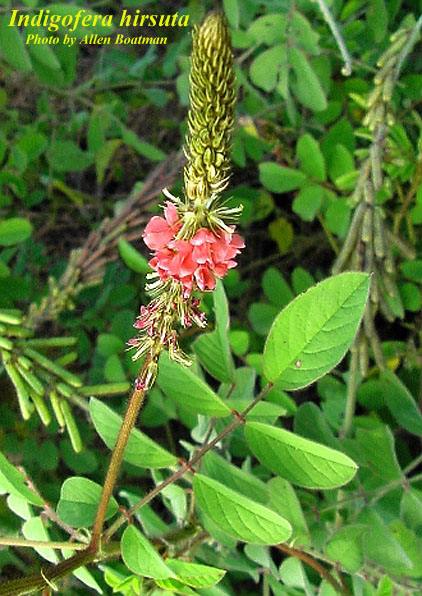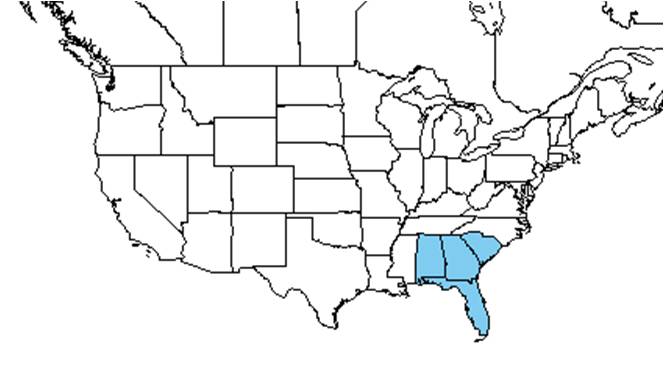Difference between revisions of "Indigofera hirsuta"
Emmazeitler (talk | contribs) |
|||
| Line 42: | Line 42: | ||
<!--===Use by animals===--> <!--Herbivory, granivory, insect hosting, etc.--> | <!--===Use by animals===--> <!--Herbivory, granivory, insect hosting, etc.--> | ||
<!--===Diseases and parasites===--> | <!--===Diseases and parasites===--> | ||
| − | ==Conservation and | + | ==Conservation, cultivation, and restoration== |
| − | == | + | |
| + | ==Cultural use== | ||
==Photo Gallery== | ==Photo Gallery== | ||
==References and notes== | ==References and notes== | ||
Revision as of 10:21, 8 June 2021
| Indigofera hirsuta | |
|---|---|

| |
| Photo by Allen Boatman, Atlas of Florida Vascular Plants | |
| Scientific classification | |
| Kingdom: | Plantae |
| Division: | Magnoliophyta - Flowering plants |
| Class: | Magnoliopsida - Dicotyledons |
| Order: | Fabales |
| Family: | Fabaceae ⁄ Leguminosae |
| Genus: | Indigofera |
| Species: | I. hirsuta |
| Binomial name | |
| Indigofera hirsuta L. | |

| |
| Natural range of Indigofera hirsuta from USDA NRCS Plants Database. | |
Common name: Hairy indigo[1]
Contents
Taxonomic notes
Synonyms: none.[1]
Varieties: none.[1]
Description
Distribution
This plant is scattered throughout the Southeast, including areas like southern Mississippi and Alabama.[1]
Ecology
Habitat
Indigofera hirsuta frequents sandy disturbed areas, such as wildlife "food fields". It is native to the Old World tropics.[1]
Phenology
It flowers from September to December with peak inflorescence in September.[2]
Pollination
The following Hymenoptera families and species were observed visiting flowers of Indigofera hirsuta at Archbold Biological Station:[3]
Megachilidae: Anthidiellum notatum rufomaculatum, A. perplexum, Megachile albitarsis, M. brevis pseudobrevis, M. exilis parexilis, M. mendica, M. petulans
Conservation, cultivation, and restoration
Cultural use
Photo Gallery
References and notes
- ↑ 1.0 1.1 1.2 1.3 1.4 Weakley, A.S. 2015. Flora of the southern and mid-atlantic states. Working Draft of 21 May 2015. University of North Carolina at Chapel Hill, Chapel Hill, North Carolina.
- ↑ Nelson, G. PanFlora: Plant data for the eastern United States with emphasis on the Southeastern Coastal Plains, Florida, and the Florida Panhandle. www.gilnelson.com/PanFlora/ Accessed: 12 DEC 2016
- ↑ Deyrup, M.A. and N.D. 2015. Database of observations of Hymenoptera visitations to flowers of plants on Archbold Biological Station, Florida, USA.